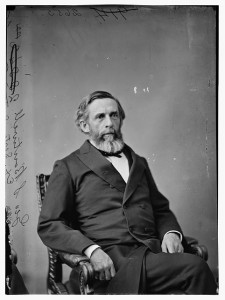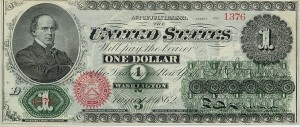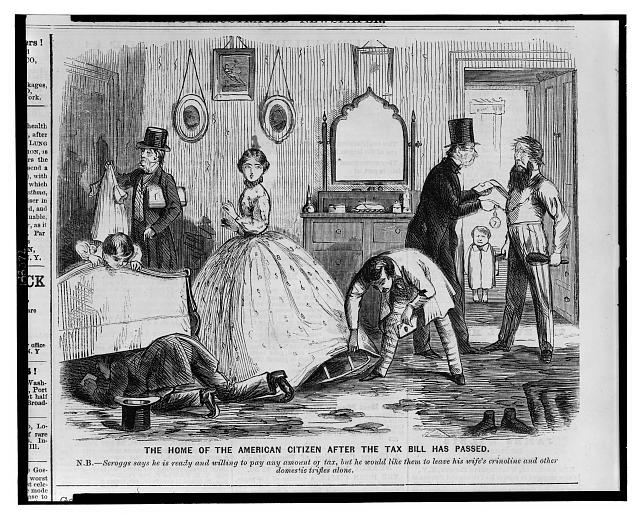From The New-York Times January 22, 1863:
THE INTERNAL REVENUE REPORT.
We have every reason to congratulate the country on the operation post and prospective of the Internal Revenue Bureau. In another column we publish Mr. Commissioner BOUTWELL’S first official report, which affords abundant proof both of the administrative efficiency with which he has discharged his trust, and of the ultimate certain success of our new system of internal taxation as a source of public revenue.
“One tax,” says SISMONDI, “is preferable to another in proportion as it employs a less numerous body of officers, and as the cost of collection forms a smaller per centage of the total revenue.” Tried by this rule, our new excise tax is a great success. The French internal taxes cost 10 per cent. for collection, the English 4 1/2 per cent., while ours costs less than 2 1/2 per cent. Again, the French tax collectors amount to several thousands, the English to 5,457, while our entire body of collectors and assessors, with their clerks, deputies and assistants, number no more than 3 882. This contrast is all the more gratifying because from the sparseness of our population, and the extensive area of the country, we might have reasonably expected for the first year, at any rate, a less favorable report. Of course the number of officers will be somewhat augmented as the business of the Bureau becomes more heavy, and the important practical suggestions, recently made by the Commissioner, are more fully adopted. But there is no doubt that, so far as the loyal States are concerned, the expenses incident to collection will be kept far below the English standard of 4 1/2 per cent.
According to the estimates given in the report, the stamp duties will produce during the year fifteen millions of dollars, and the other internal taxes nearly sixty-two millions. Next year it is believed the amount will be doubled, as the entire fiscal machinery will then be in full operation. Hence one hundred and fifty millions may probably be relied on from this source, as estimated in the recent financial report of Mr. CHASE.
This progressive increase is in accordance with the great principle of fiscal science, which directs us wherever a nation has not been used to a particular kind of fiscal burden, to tax gently at first, and to increase the weight by degrees, as the nation is able to bear it. Fiscal contributions for the support of a popular Government, if they be well laid and equitably distributed, form, as is proved by the example of England, no serious hindrance to the growth of national wealth. The nations which have been most heavily burdened with taxation have often been precisely those which have made the most rapid progress in opulence, productiveness and power.
George Sewall Boutwell was an ardent abolitionist who helped found the Republican Party in Massachusetts. He worked as the first Commissioner of Internal Revenue from July 17, 1862 until March 4, 1863, when he began a stint as a representative and radical Republican in the U.S. House. He served as Secretary of the Treasury during President Grant’s first term.



